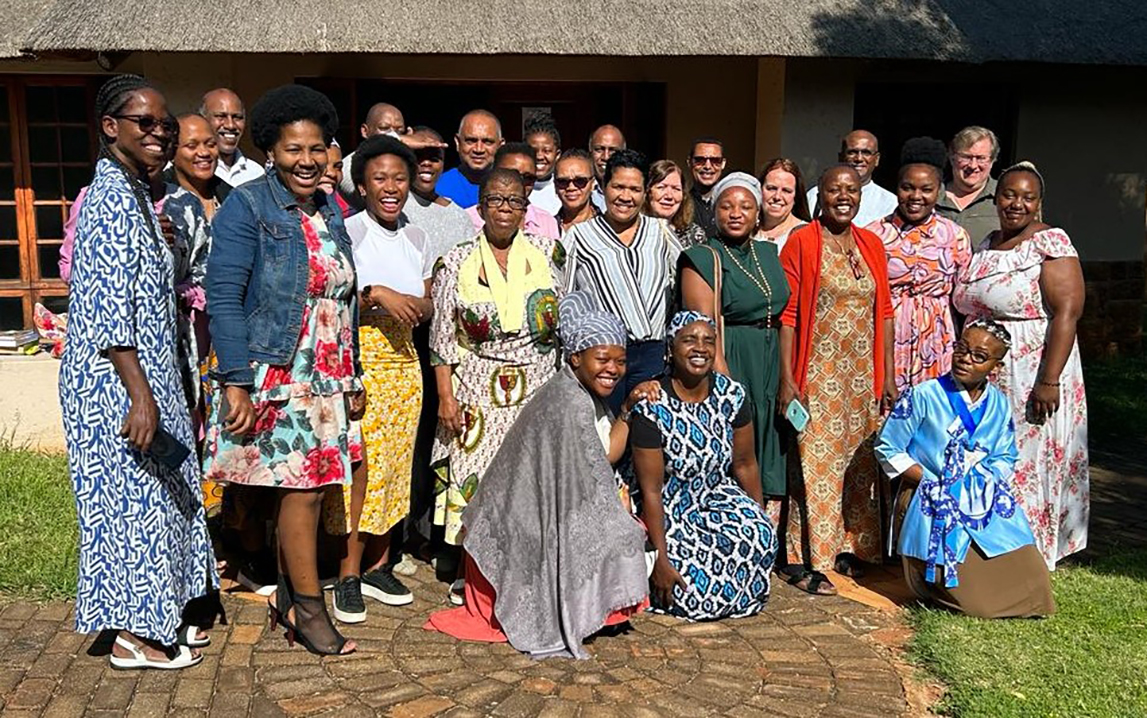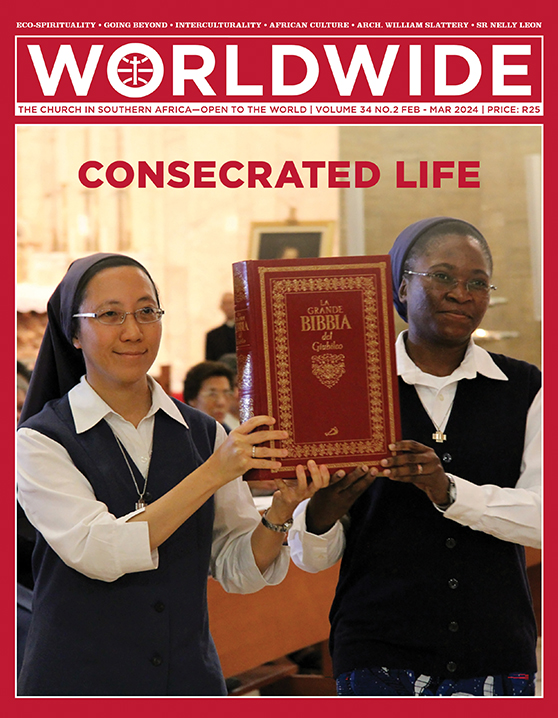
CONSECRATED LIFE
The painting on the front cover entitled “The disciples of Emmaus” reflects our journey of hope. Jesus not only walks with us, but gives us the wisdom to perform our ministries and opens our eyes to see Him in the people that we are serving.
SPECIAL REPORT • RELIGIOUS LIFE AND AFRICAN CULTURE
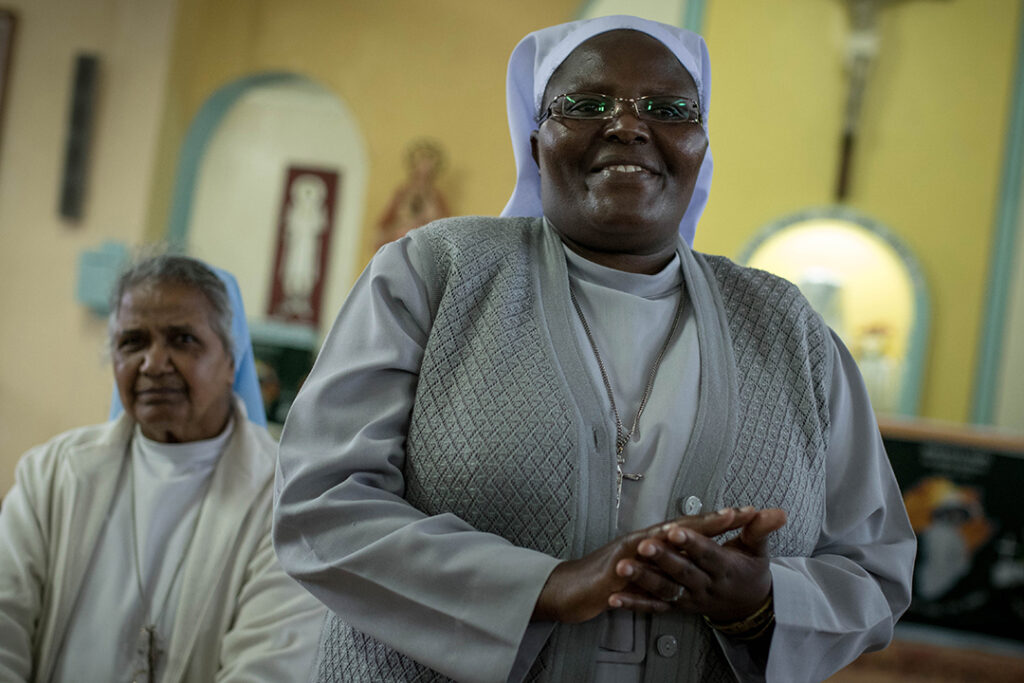
NOTORIOUSLY RELIGIOUS
Many essential elements of religious life connect widely with African cultures, and their symbiotic relationship brings newness to both. The author explores some points of convergence between these elements and advocates for a dialogue which converts the challenges derived from their encounter into mutual opportunities for growth.
BY JORDAN CARELSE OFM CAP | THEOLOGY STUDENT, PIETERMARITZBURG
AS WE continue “Walking with God’s people”, as stated in the book, 100 years of Comboni presence in South Africa (1924-2024), we thank the many Missionaries who left their countries and families behind in order to come and work for the kingdom of God, through serving and teaching us, the children of the soil. It is, without a doubt, through their prayers, their example and constant sacrifice that we have so many Religious Orders and Congregations on our continent. The missionaries did their part. Now, it is up to you and me to continue the great work begun by God through them, and spread God’s message of love, joy and peace, now, in our more than ever troubled world.
African culture and religiosity
It was John Mbiti (1969), a Kenyan Philosopher and Theologian, who said that, “Africans are notoriously religious.” We can see that religious practices and beliefs are deeply embedded in the daily lives of African people. While in its usual context, the word “notorious” has a rather negative connotation, this is not the case here. Here, it rather shows, and even emphasizes, the prominence and intensity of religious expressions, the “nonseparability” of religious beliefs and the African identity, as well as the profound and pervasive nature of spirituality in our African cultures.
Our African culture strongly emphasises family, relationships, community living, and mutual support: values that are consistent with Christian teachings. The phrase, “Umuntu ngumuntu ngabantu” comes to mind. For Lovemore Mbigi (1997), a Zimbabwean author, ‘Ubuntu’ is identified as “survival, spirit of solidarity, compassion, respect and dignity.” Through ‘Ubuntu’s we learn to rely upon each other, not merely regarding our own merits, but consciously and constantly reminding ourselves that everyone is good and everyone can contribute to the development of a better society. The phrase “Working together we can do more” often appears on posters before election time in South Africa. These words as they appear on nearly every billboard and lamp post in the country, aim to inspire all of us: it is my prayer that we may all realise this and work towards this goal.
Bonds of fraternity
It was St. Francis of Assisi (1223) who said, “The Lord gave me brothers (and sisters) …” And so, for Francis, the bond between us, his brothers, was not just one of human connection, but it went much deeper than that, it was to be seen as a gift from God. Therefore, ‘Fraternity’ is in fact a manifestation of God’s providence. We are a community brought together by a shared commitment to living out the Gospel in a radical, authentic, active and loving manner. So, in the religious sense of community, we see very clearly the familial nature, mutual love, support and service to each other and to God’s people, in fact very similar to ‘Ubuntu’.
Religious life emphasizes fraternity, and ‘Ubuntu’ looks into “unity in community”.
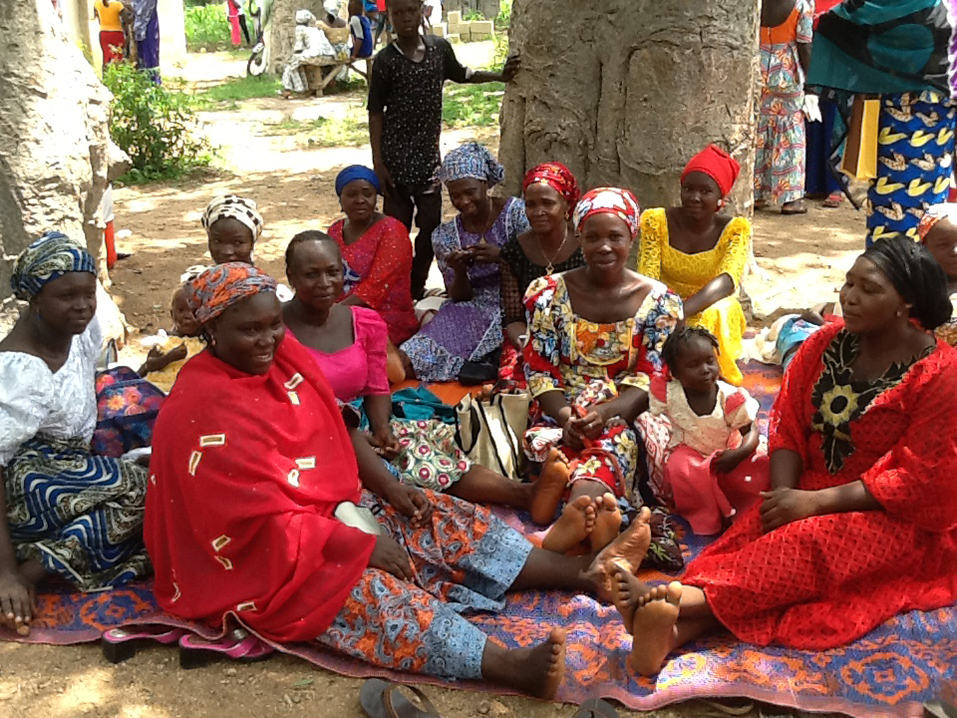
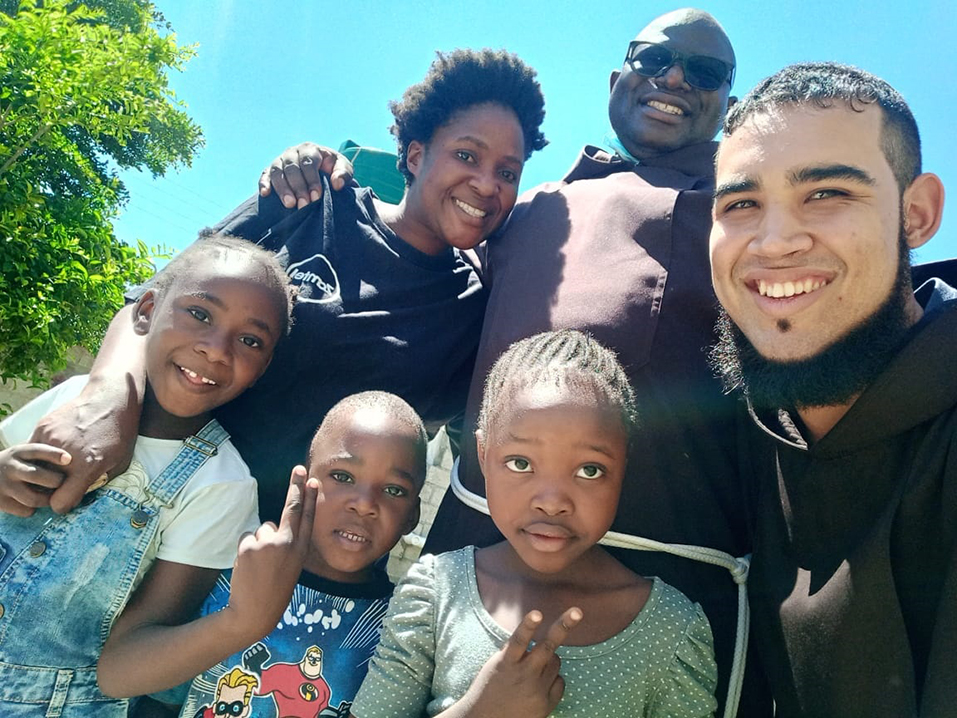
In our Franciscan way of life, we have what we call “house chapters”, as well as “fraternal correction”. In the African culture, we have what is called the “meeting under the Palaver tree”, where issues are discussed and relational matters within the community are addressed. Religious life emphasizes fraternity, and ‘Ubuntu’ looks into “unity in community”. In Religious life we look out for one another, help each other, pray together, eat and live together. Similarly, in African culture, community living is emphasized, love is mutual, and generosity and reciprocity are key values. “It takes a village to raise a child”: we have often heard these words which simply mean that everyone helps everyone. First and foremost, the child belongs to the community. In this way, the mother and father of my friend are my parents too. They can correct and discipline me, just as they would their own biological child. So, ‘Ubuntu’ again. In Religious life we profess, “With the help of my brothers (and sisters)”, therefore, a community, or even a “senior professed member”, is there to support the “newly professed”. Through this, as members of one family, we grow together, share and create new experiences together, love and live together. All of this is clear evidence of the connection between our African culture and our Religious life.
African spirituality and liturgy
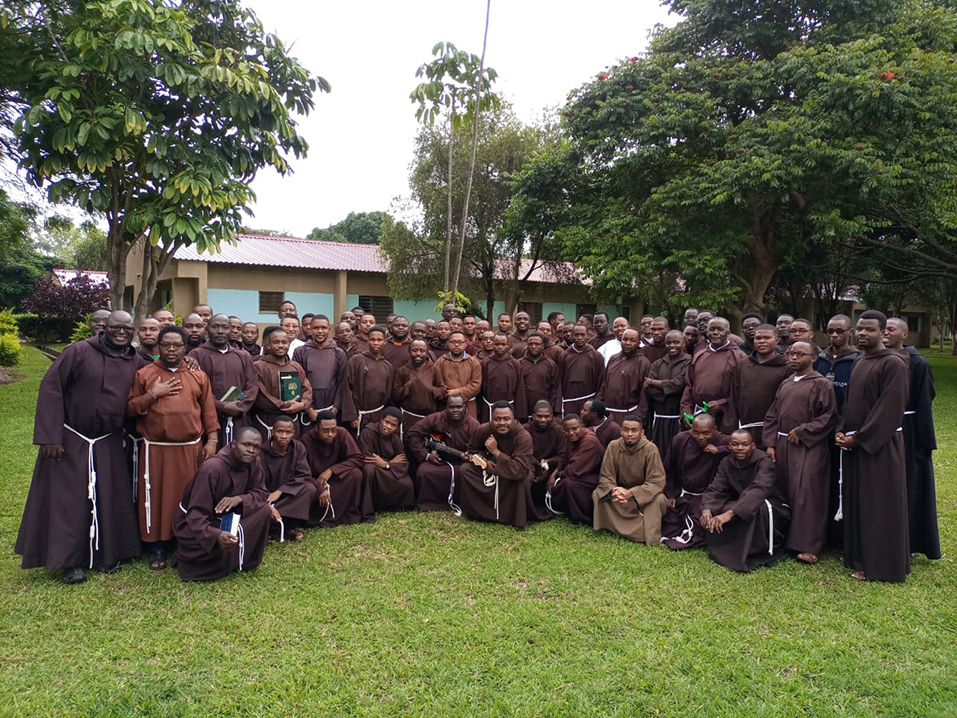
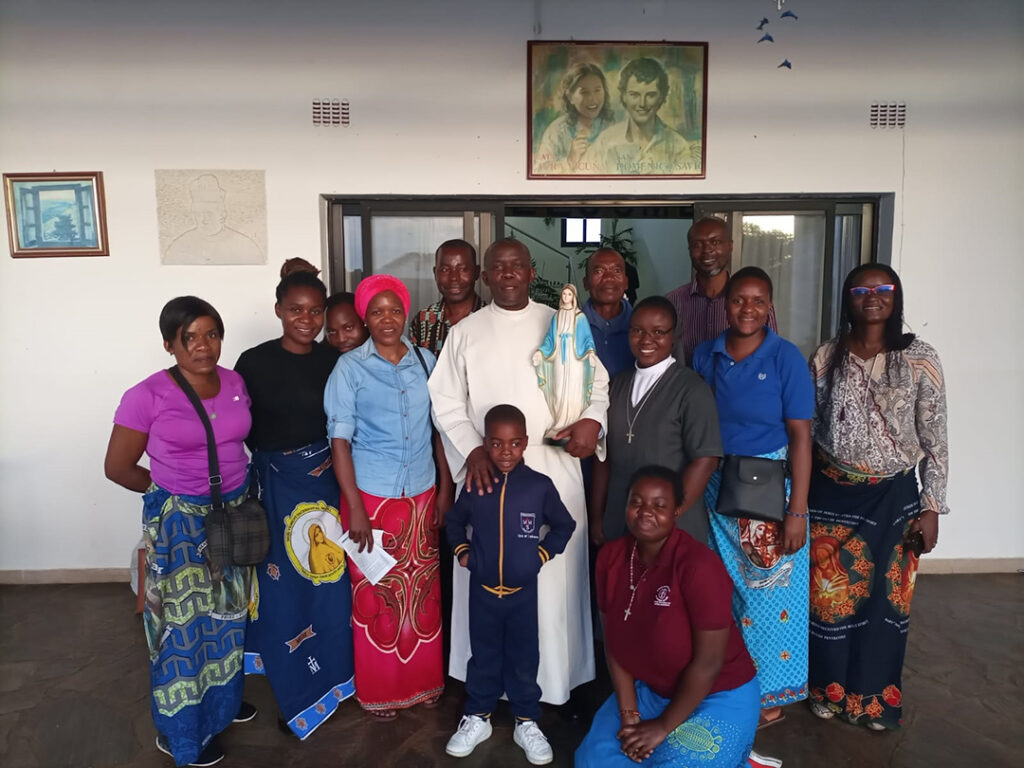
Moving slightly away from Religious life, but remaining in the domain of “Religion”, a harmonious convergence continues to unfold in the dynamic interchange of African culture and the Religious life of the Church. A distinctive expression of faith, that unites the holy traditions of Catholicism with the rich cultural legacy of Africa, is born out of this symbiotic relationship, which is based on respect for diversity and shared spiritual values. An amicable fusion follows, as the colourful rituals of African spirituality meet the solemn liturgy of the Church. The universally significant Catholic Mass blends with customary African rituals to create a sacred space where the heavenly and material worlds meet. Indigenous dance, music, and symbolism are incorporated into our worship, not only to enhance the experience, but also to strengthen the bond between the faithful and the Divine.
African culture contributes to the global tapestry of the Catholic Church through its diversity of languages, traditions, and customs.
African culture contributes to the global tapestry of the Catholic Church through its diversity of languages, traditions, and customs. The Church becomes a mosaic that reflects the beauty of God’s creation when it embraces this diversity. Worship becomes more inclusive and genuine when African languages are used in liturgical celebrations, and culturally appropriate hymns are incorporated. Today we call this, “the use of the vernacular.” Undoubtedly these actions foster a great sense of belonging and so they surely encourage full, active participation of all the gathered faithful.
Dialogue of faith and culture
While unity is achieved through the convergence of African culture and religious life, there are challenges as well, and these should not be ignored. Ongoing dialogue and adaptation are necessary due to cultural nuances, differing spiritual interpretations, and the need for mutual understanding. The Church has the power to transform challenges into opportunities for growth, collaboration, and shared transformation, not only by recognising the richness of African cultures, but also through empowering the local communities whom she serves and where the Church finds herself in. It is without a doubt that the current “meeting under the palaver tree”, that is, “the synod on synodality”, will bring about an even greater and stronger bond.
Whether we adhere to and live out the African Culture or whether we live out the Religious life, we are all called to be religious, to believe what we profess, to practice what we preach, and to serve others with joy every day. As Rollo May (2023), an American existential psychologist once said, “Joy, rather than happiness, is the goal of life […].” Joy comes from the heart and is an emotion that is felt deep within. Happiness, on the other hand, is an external appearance of what we feel inside. The book of Proverbs makes it even more clear, “A heart full of joy and goodness makes a cheerful face […]” (Prov 15:13). Finally, as we continue to journey together as pilgrims, helping each other, walking together and sharing in joy and sorrow, may we never tire of outdoing each other in good deeds, may the embrace of ‘Ubuntu’ never leave us, and may we experience it more and more as we continue to be “notoriously” religious.

